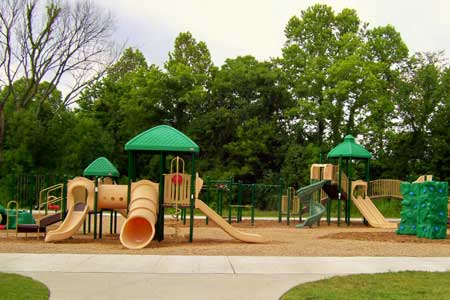|
 Nearly half of Orange County, Calif., parks are shut to sex offenders. Greg Bird, in Anaheim, was convicted of indecent exposure. |
|
Convicted sex offenders are barred from surfing at the famous pier in this Orange County city. In nearby Dana Point, they are prohibited from casting a fishing line in the harbor. And if they wander into a public park in Mission Viejo, they could be shipped back to jail for six months, following the City Council’s vote this year to ban them from a host of places where children congregate. “We need to protect our kids,” the Orange County district attorney, Tony Rackauckas, had told the Mission Viejo City Council. “The danger is very real.” Orange County finds itself at the enter of a new wave of laws restricting the movement of sex offenders. The county government and a dozen cities here have banned sex offenders from even setting foot in public parks, on beaches and at harbors, rendering almost half the parks in Orange County closed to them. Ten more cities are considering similar legislation. And Orange County is far from alone. In recent years, communities around the country have gone beyond regulating where sex offenders can live and begun banning them outright from a growing list of public places. From North Carolina to Washington State, communities have designated swimming pools, parks and school bus stops as “child safety zones,” off limits to some sex offenders. They are barred from libraries in half a dozen Massachusetts cities, and from all public facilities in tiny Huachuca City, Ariz. “Child safety zones are being passed more and more at the city and county level,” said Elizabeth Jeglic, a professor at John Jay College of Criminal Justice. “It’s becoming more and more restrictive. They’re not only limiting where sex offenders can live, but they’re limiting their movement as well.” The proliferation of such restrictions reflects the continued concerns of parents and lawmakers about potential recidivism among sex offenders. But it has also increasingly raised questions about their effectiveness, as well as their fairness. Opponents have dismissed “child safety zones” as unenforceable, saying they are designed to make politicians look tough on crime and drive sex offenders from the area, not make children safer. Irene Pai, a lawyer with the Orange County public defender’s office, said “child safety zones” give parents a false sense of security, punishing many offenders who are not dangerous without actually stopping predators from entering parks. (Read by Nelly Min. Nelly Min is a journalist at the China Daily Website.) (Agencies) |
曾被定罪的性侵犯者将被禁止在美国橘子郡的著名码头冲浪。 在附近的戴纳波恩特市,他们被禁止在海港钓鱼。 如果他们无意间走进米申维埃荷市的公园,他们可能会被送上船去蹲6个月监狱,因为市议会今年投票通过一个法案,禁止性侵犯者踏足儿童聚集的多个地方。 橘子郡的地方检察官托尼•拉考卡斯书告诉米申维埃荷市议会说:“我们需要保护我们的小孩。危险非常真实地存在着。” 橘子郡正迎来一系列限制性侵犯者行为的新法律。郡政府和十几个城市已经禁止性侵犯者踏足公园、海滩和海港,这一法规已经在这些城市附近的公园施行,覆盖了橘子郡近一半的公园。还有另外10个城市正考虑实施相近的法规。 实施这一法规的并不只有橘子郡。近些年来,美国各地的社区不但对性侵犯者的居住处进行限制,而且还开始禁止他们进出越来越多的公共场所。 从北卡罗来纳州到华盛顿州,社区将游泳池、公园和学校公车站设定为“儿童安全区”,禁止某些性侵犯者入内。马萨诸塞州有六个城市的图书馆都禁止性侵犯者进入,亚利桑那州的华楚卡小城的所有公共设施也都不对性侵犯者开放。 约翰•杰刑事司法学院的伊丽莎白•杰格里克教授说:“越来越多的城市和郡县通过了‘儿童安全区’法案。现在对性侵犯者的限制越来越严格。他们不仅限制性侵犯者的居住地,还限制他们的行动。” 这种限制令的推广反映出父母和立法者对于性侵犯者再次犯罪的潜在可能性的持续担忧。不过它也日益引发人们对其公平性和有效性的质疑。 反对者认为“儿童安全区”无法执行,称其只是为了突出政客打击犯罪的业绩、将性侵犯者赶出管辖区,而不会让孩子更安全。 橘子郡公设辩护律师事务所的律师艾琳•派说,“儿童安全区”给父母一种错误的安全感,惩罚了许多不危险的性侵犯者,但是却不能真正阻止“捕食者”进入公园。 相关阅读 (中国日报网英语点津 陈丹妮 编辑:Julie) |
|
Vocabulary: render: 执行,实施 recidivism: 再犯;累犯(行为或倾向) predator: 捕食者 |
